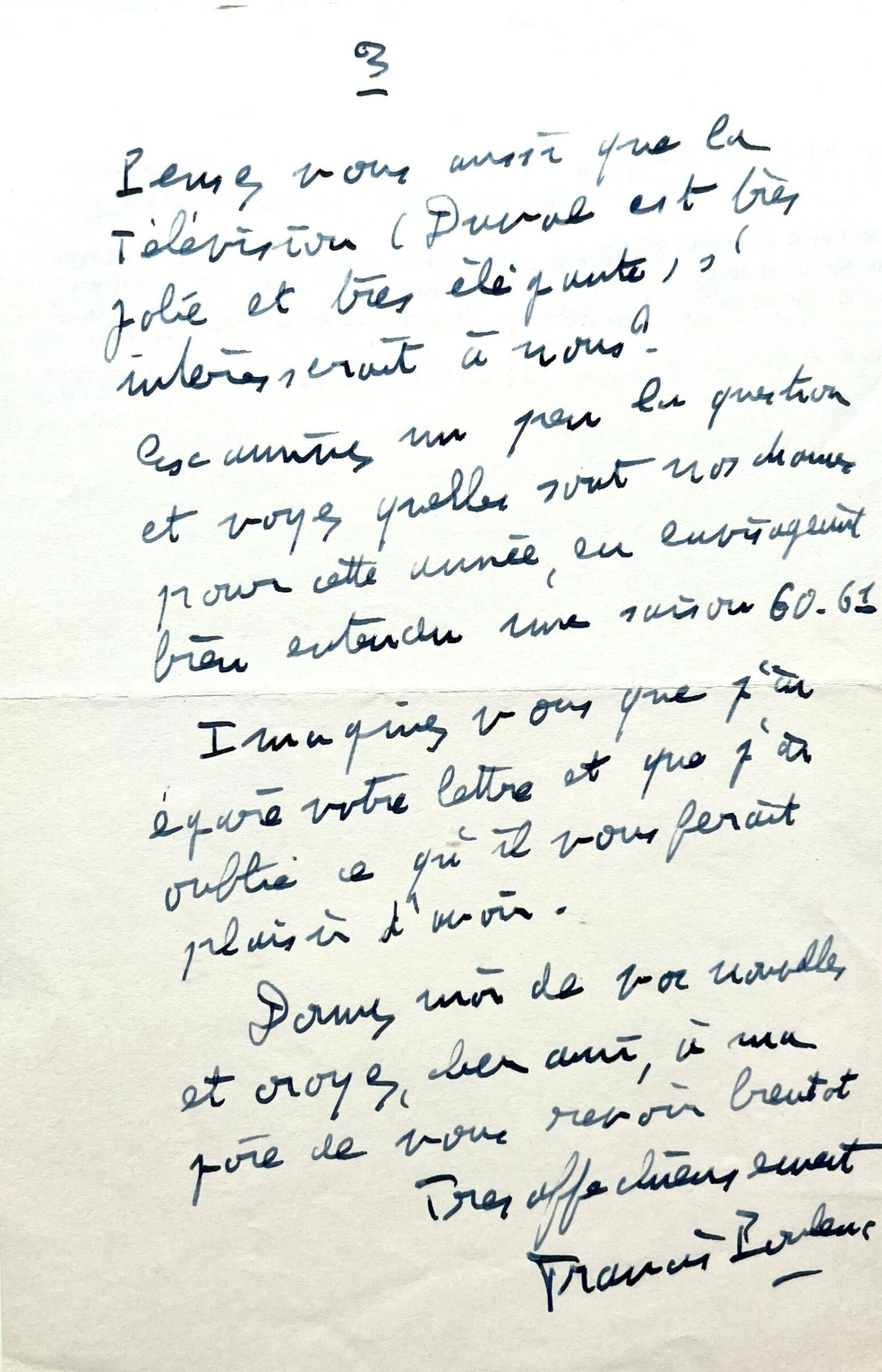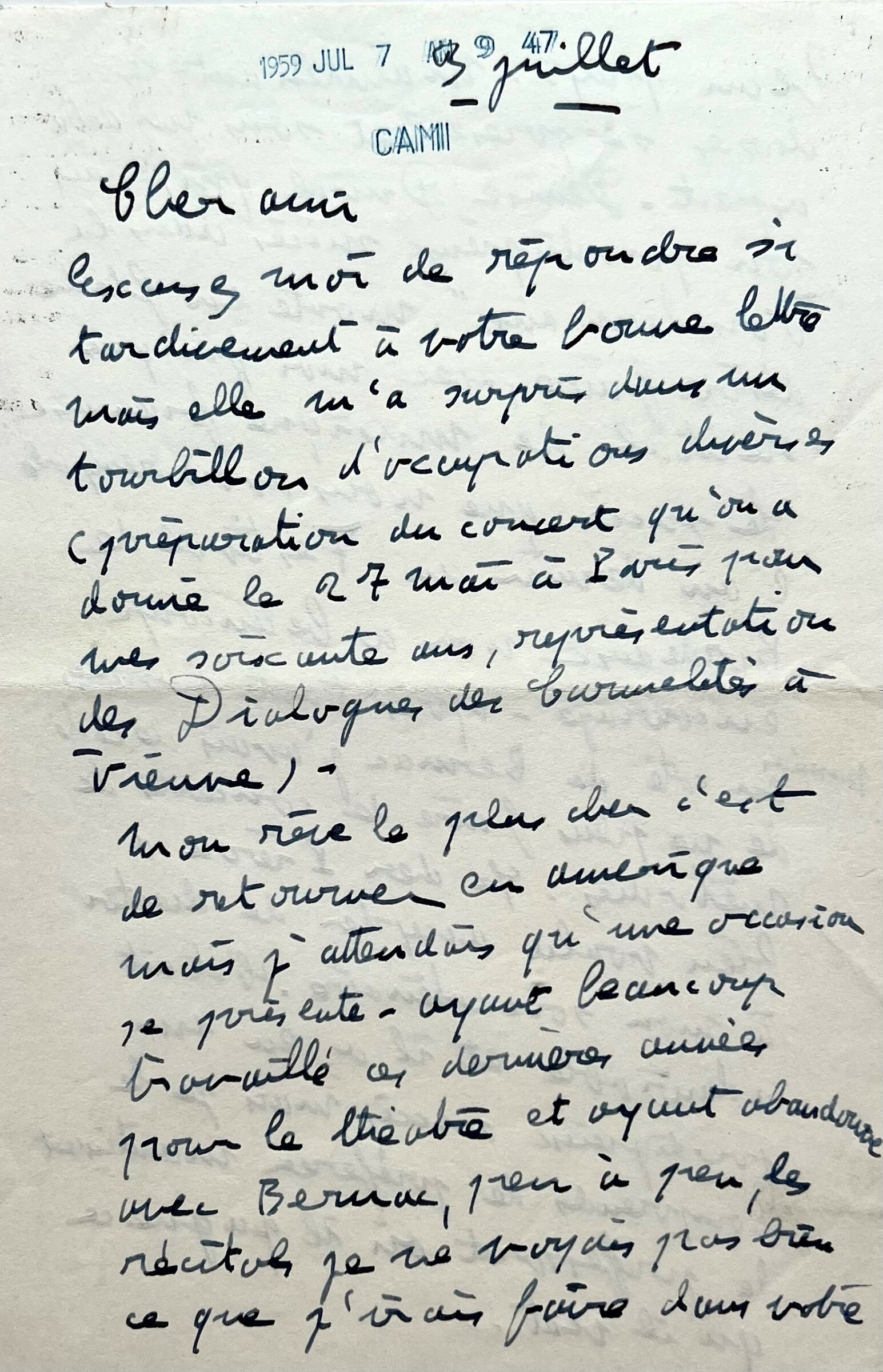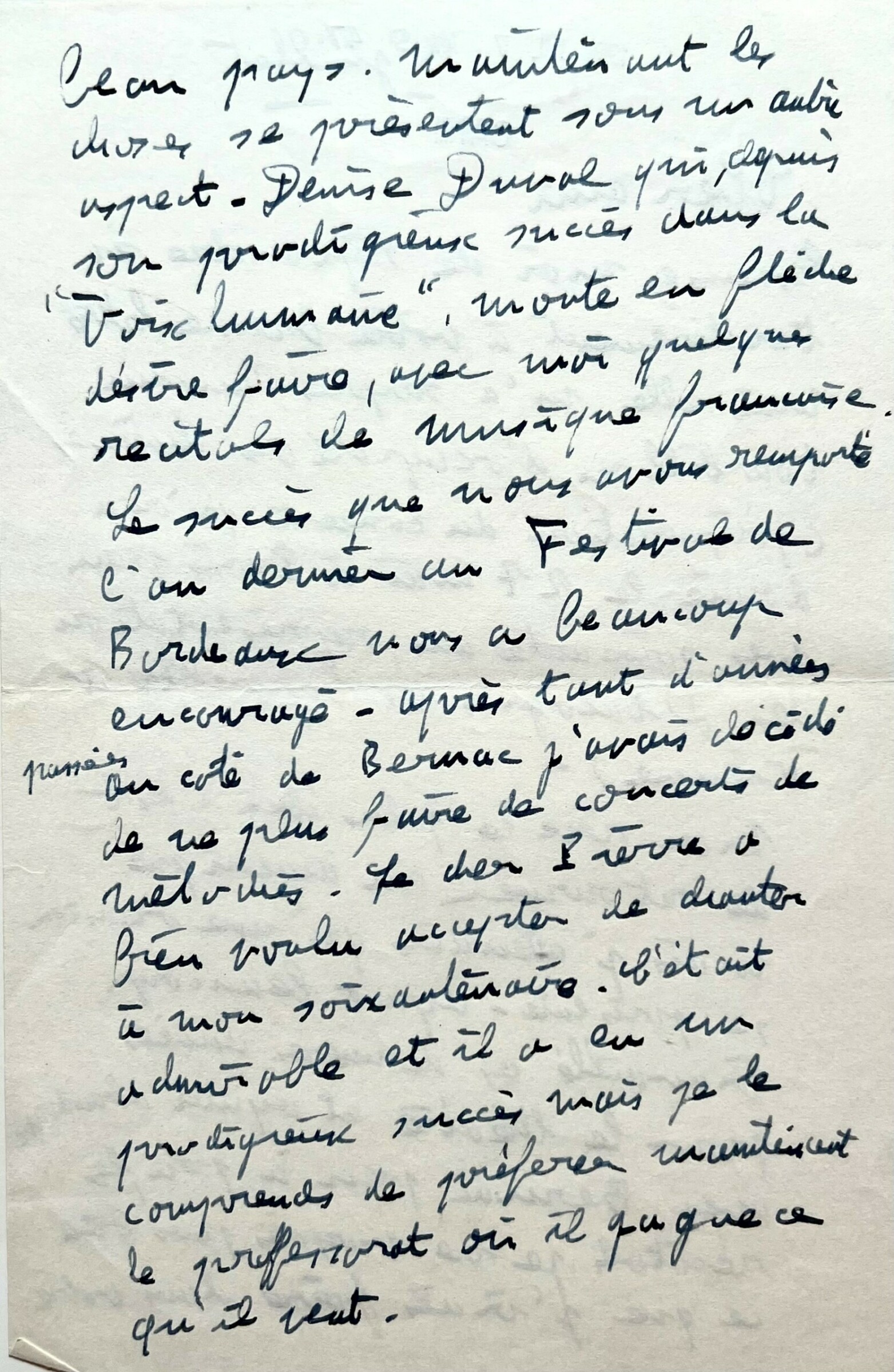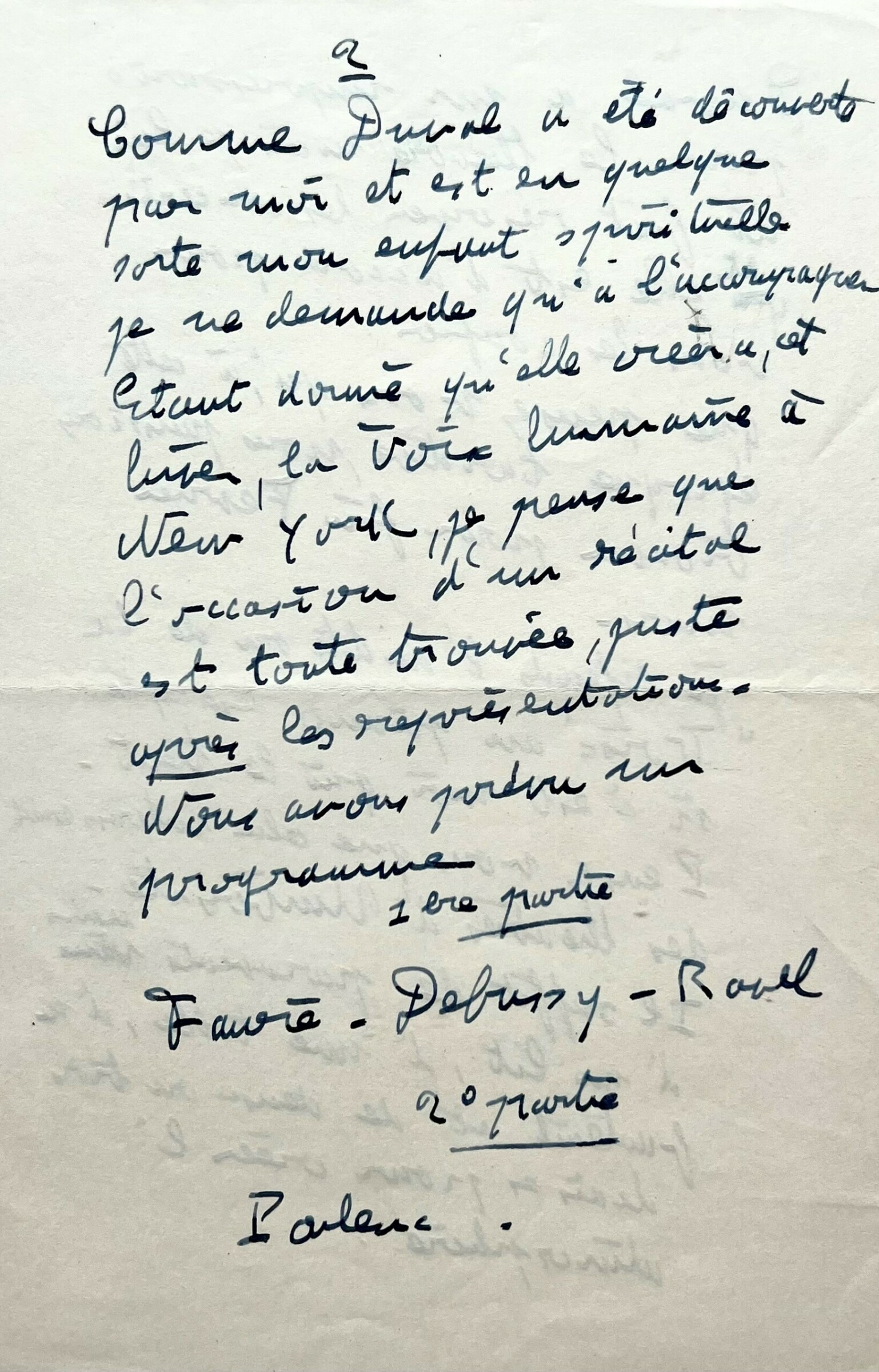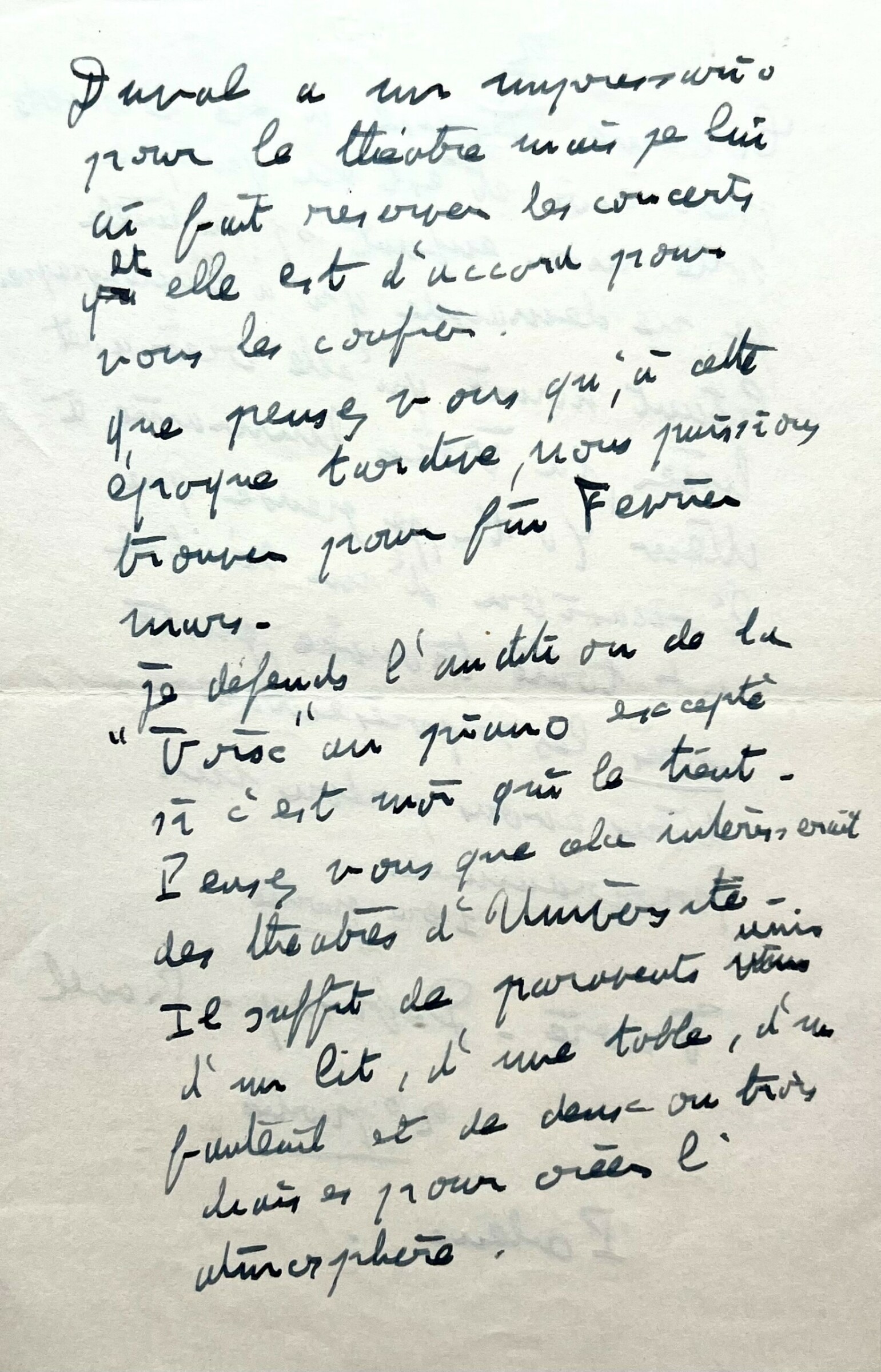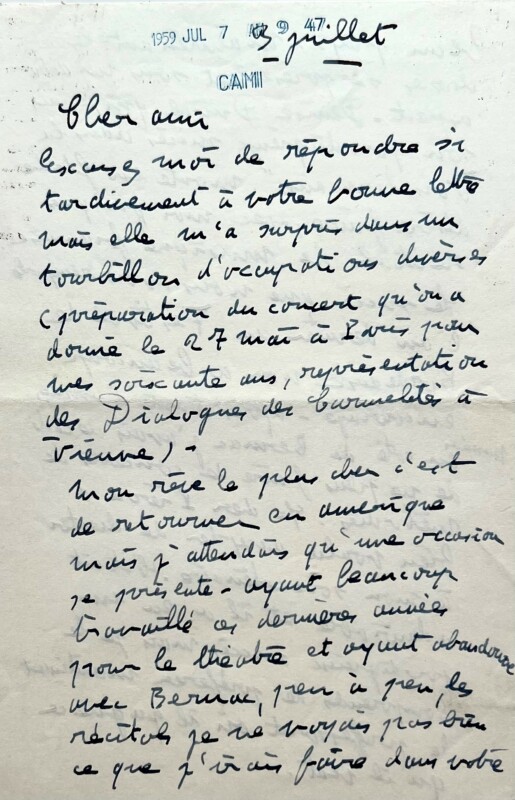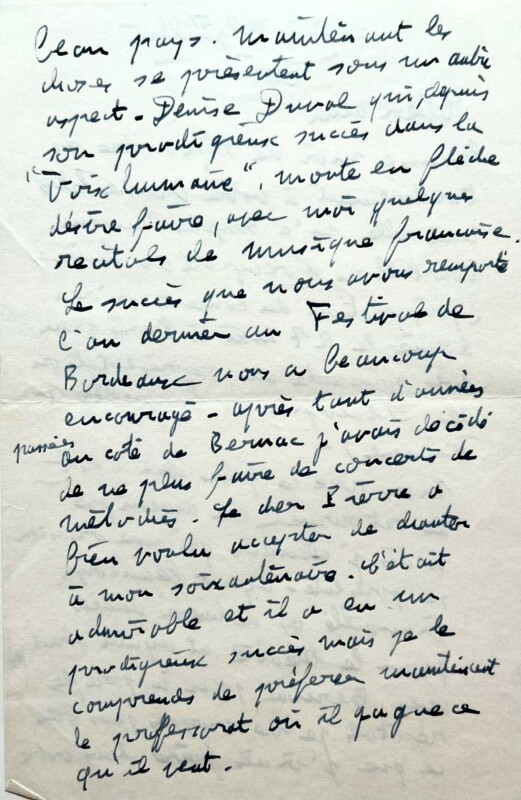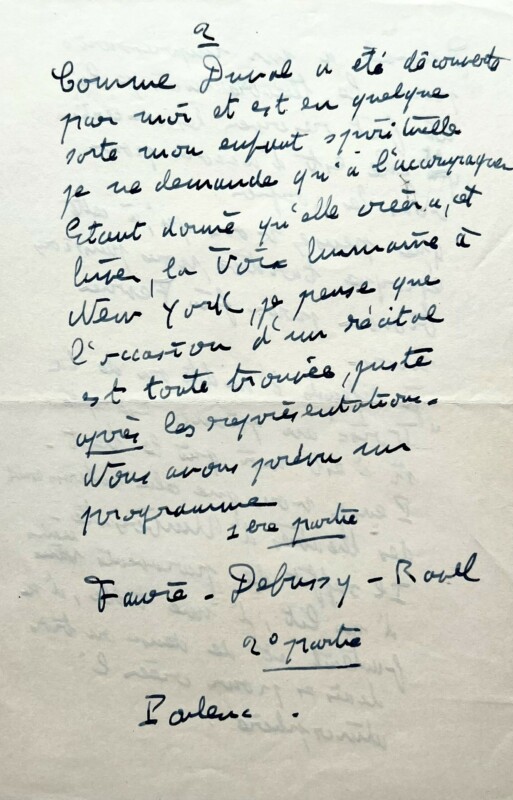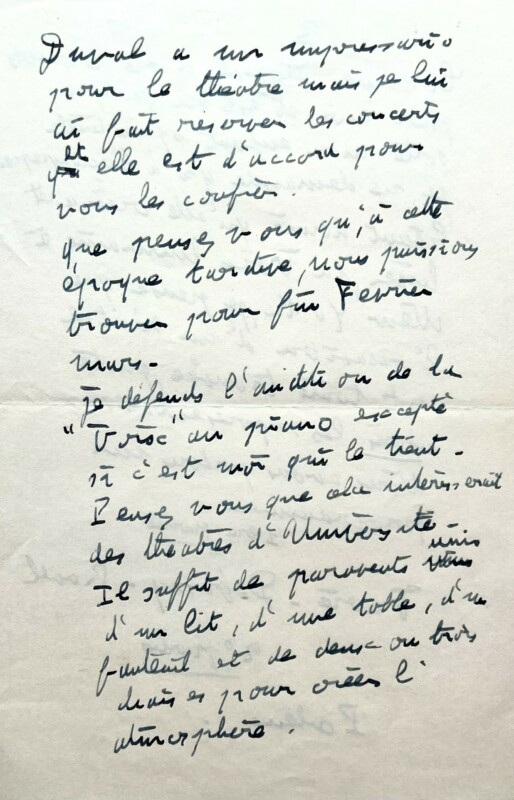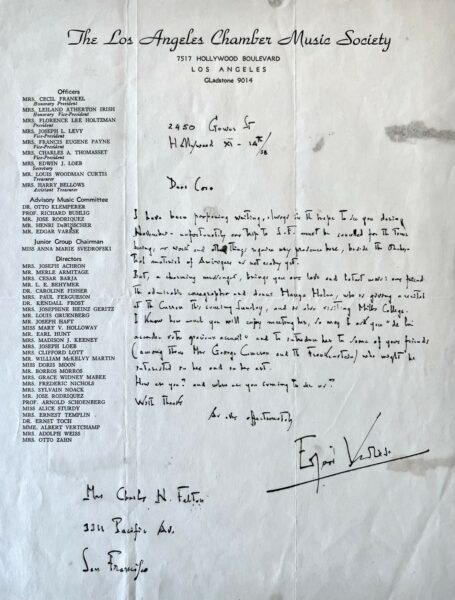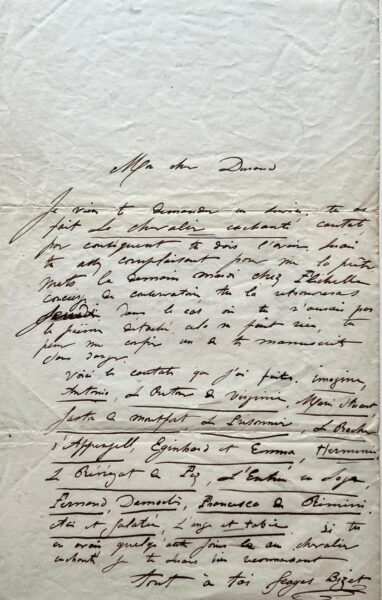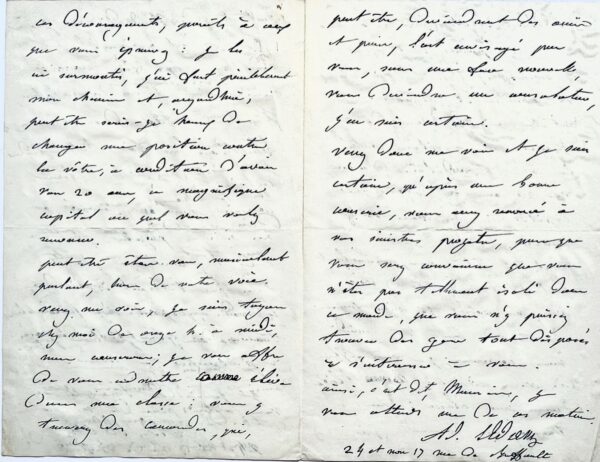Since Duval was discovered by me and is in a way my spiritual child, I ask only to accompany her. Given that she will premiere La Voix humaine this winter in New York, I think that the opportunity for a recital has been found, right after the performances. We have envisioned a program:
1st part: Faure, Debussy, Ravel.
2nd part: Poulenc.
Duval has an impresario for the theater, but I have had her concerts reserved, and she is willing to hand them over to you.
What do you think, at this late date, we could find for the end of February [or] March?
I prohibit performances La Voix with piano, unless it is I who give it. Do you think that it would interest university theaters? All we need is a folding screen together with a bed, a table, an armchair and two or three books [?] to create the atmosphere. Do you think that television would be interesting for us as well? (Duval is very pretty and very elegant.)
Think a bit about these questions and see what our chances are for this year, while looking ahead, of course, to a season in 60/61.
Imagine that I misplaced your letter and that I forgot what would please you to have [?]. Tell me your news, and believe, dear friend, in my joy at seeing you again soon…”
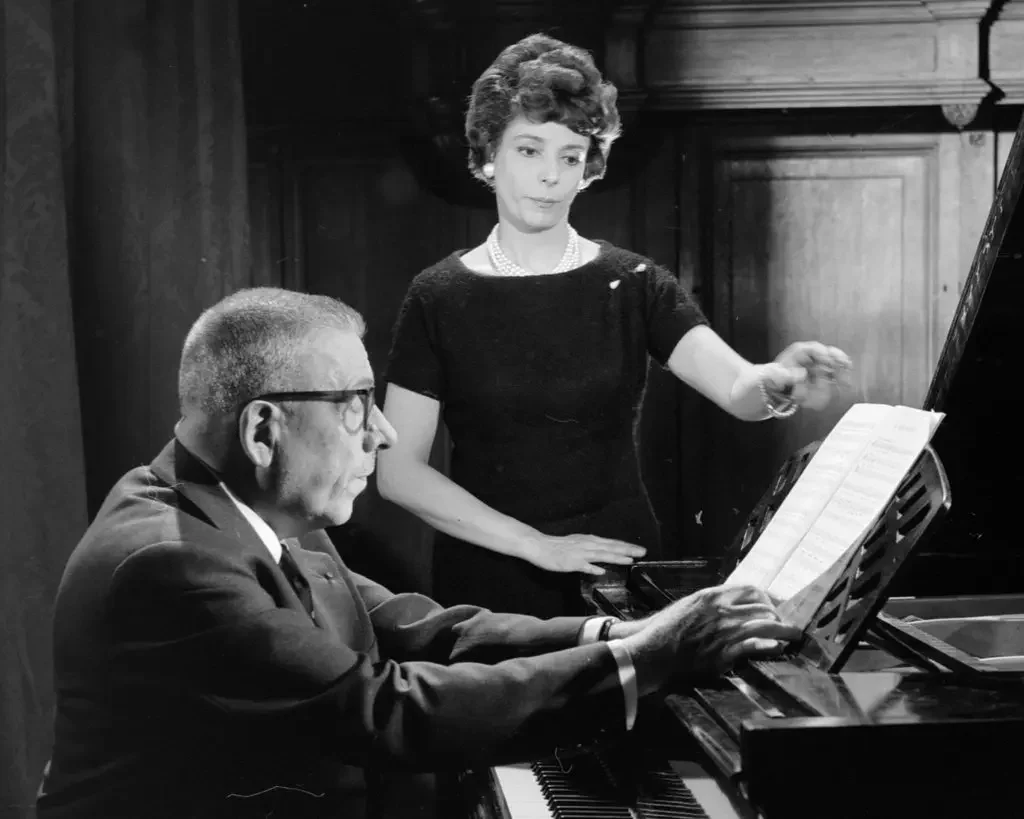
Francis Poulenc with Denise Duval
A member of the group of French composers known as Les Six, Poulenc’s best-known work, the ballet Les Biches, was written in 1923 for Serge Diaghilev’s Ballets Russes. The surrealistic and mildly erotic ballet, with choreography by Vaslav Nijinsky, catapulted Poulenc to success. “Perhaps more than any other French composer of his generation, Francis Poulenc… made a lasting contribution to the standing concert repertory, especially with regard to songs, choral works, operas, and piano works. He was a prolific and revealing letter-writer whose professional life spanned two world wars and two continents,” (Notes, “Review of Francis Poulenc, ‘Echo and Source’: Selected Correspondence, 1915-1963,” Heyman).
In 1947, Poulenc discovered French soprano Denise Duval (1921-2016) in the title role in Madame Butterfly at the Opéra-Comique. Later the same year, she starred in Poulenc’s opéra bouffe Les Mamelles de Tirésias and was closely associated with Poulenc for the rest of his career. In February 1959, at the Opéra-Comique, she created the role of Elle in Poulenc’s La voix humaine, a tragédie lyrique based on Jean Cocteau’s play. The success of the opera, with which Cocteau was directly involved and the entirety of which portrays a jilted lover’s phone call with her former paramour, resulted in its performance in the United States, where it premiered starring Duval, at the American Opera Society at Carnegie Hall. The New York Times called it “an operatic tour de force” stating “it is difficult to imagine a more convincing and more affecting performance than Miss Duval’s.” During the same performance Duval sang in Poulenc’s Les Mamelles de Tirésias. In our letter, Poulenc also lays out a recital program he envisions staging in New York, which would include works by French composers Gabriel Fauré (1845-1924), Claude Debussy (1862-1918) and Maurice Ravel (1875-1937).
Our letter also discusses French singer Pierre Bernac (1899-1979), another performer with whom Poulenc maintained a close relationship, composing 90 songs for him. Poulenc’s style was “influenced by the baritone’s peculiarly refined artistry,” and the composer consulted with Bernac while composing his 1956 opera Dialogues des Carmélites, discussed in our letter, (The New Grove Dictionary). In our letter, Poulenc notes that Bernac performed at his 60th birthday party, which was their last appearance together before Bernac’s retirement.
The upper margin of the first page bears an ink docket stamp with the date, time and the word “CAMI,” indicating that the letter’s likely recipient is Columbia Artists Management, the international talent management agency. Written on the recto and verso of three sheets. Folded with some minor creasing and wear and in excellent condition.

